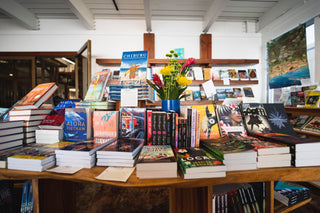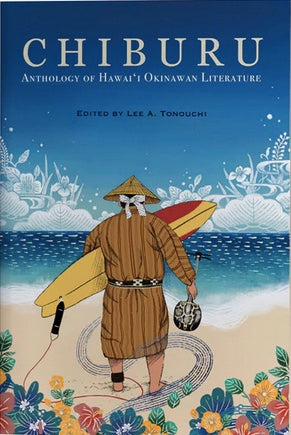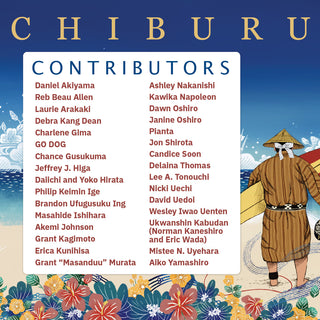Collected and edited by Lee A. Tonouchi | Paperback
Edited by Lee A. Tonouchi, CHIBURU: Anthology of Hawaiʻi Okinawan Literature brings together stories from an inspiring new wave of Okinawan storytellers and quintessential Uchinānchu writers into a singular publication.
This compelling anthology advocates for recognition of the Okinawan American identity because, simply stated, Okinawans are not Japanese! Okinawa was once an independent nation, but due to the combined forces of Japanese and American colonialism and militarism, native Okinawans continue to endure loss of their language, lands, and culture.
The diverse contributions within this anthology reflect the works of over 30 Hawaiʻi Okinawan creatives exploring and confronting Okinawan identity today. The contributions include conventional works (such as poetry, essay, drama and short story) and some unconventional compositions (like song, spoken word, an intermixing of Hawaiian and Okinawan chant, an illustrative recipe, a comic strip, digital street art, T-shirt designs, an email, a blog post and more).
In the Okinawan language, Chiburu can mean "a bottle gourd; a calabash." Chiburu is also the Hawai‘i Creole word denoting Hawai‘i locals of Okinawan ancestry. This collective work is a literary letter of longing to the homeland, seeking to make connections with the past in a contemporary world. Most importantly, this book is a celebration of cultures, relationships, and the interconnectedness we all share as citizens in the calabash of humanity.
Collected and edited by Lee A. Tonouchi | Paperback
Edited by Lee A. Tonouchi, CHIBURU: Anthology of Hawaiʻi Okinawan Literature brings together stories from an inspiring new wave of Okinawan storytellers and quintessential Uchinānchu writers into a singular publication.
This compelling anthology advocates for recognition of the Okinawan American identity because, simply stated, Okinawans are not Japanese! Okinawa was once an independent nation, but due to the combined forces of Japanese and American colonialism and militarism, native Okinawans continue to endure loss of their language, lands, and culture.
The diverse contributions within this anthology reflect the works of over 30 Hawaiʻi Okinawan creatives exploring and confronting Okinawan identity today. The contributions include conventional works (such as poetry, essay, drama and short story) and some unconventional compositions (like song, spoken word, an intermixing of Hawaiian and Okinawan chant, an illustrative recipe, a comic strip, digital street art, T-shirt designs, an email, a blog post and more).
In the Okinawan language, Chiburu can mean "a bottle gourd; a calabash." Chiburu is also the Hawai‘i Creole word denoting Hawai‘i locals of Okinawan ancestry. This collective work is a literary letter of longing to the homeland, seeking to make connections with the past in a contemporary world. Most importantly, this book is a celebration of cultures, relationships, and the interconnectedness we all share as citizens in the calabash of humanity.
Questions?




